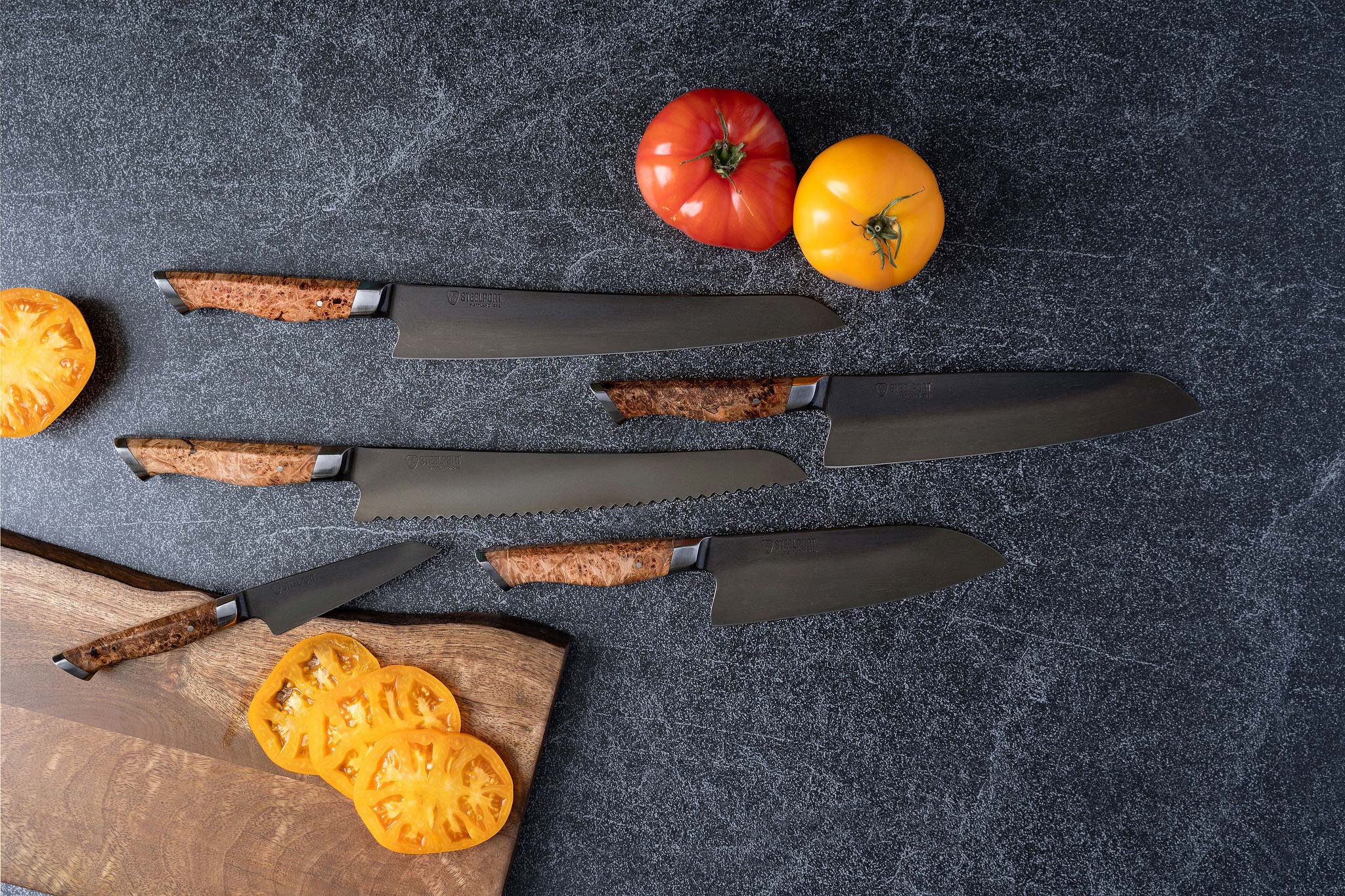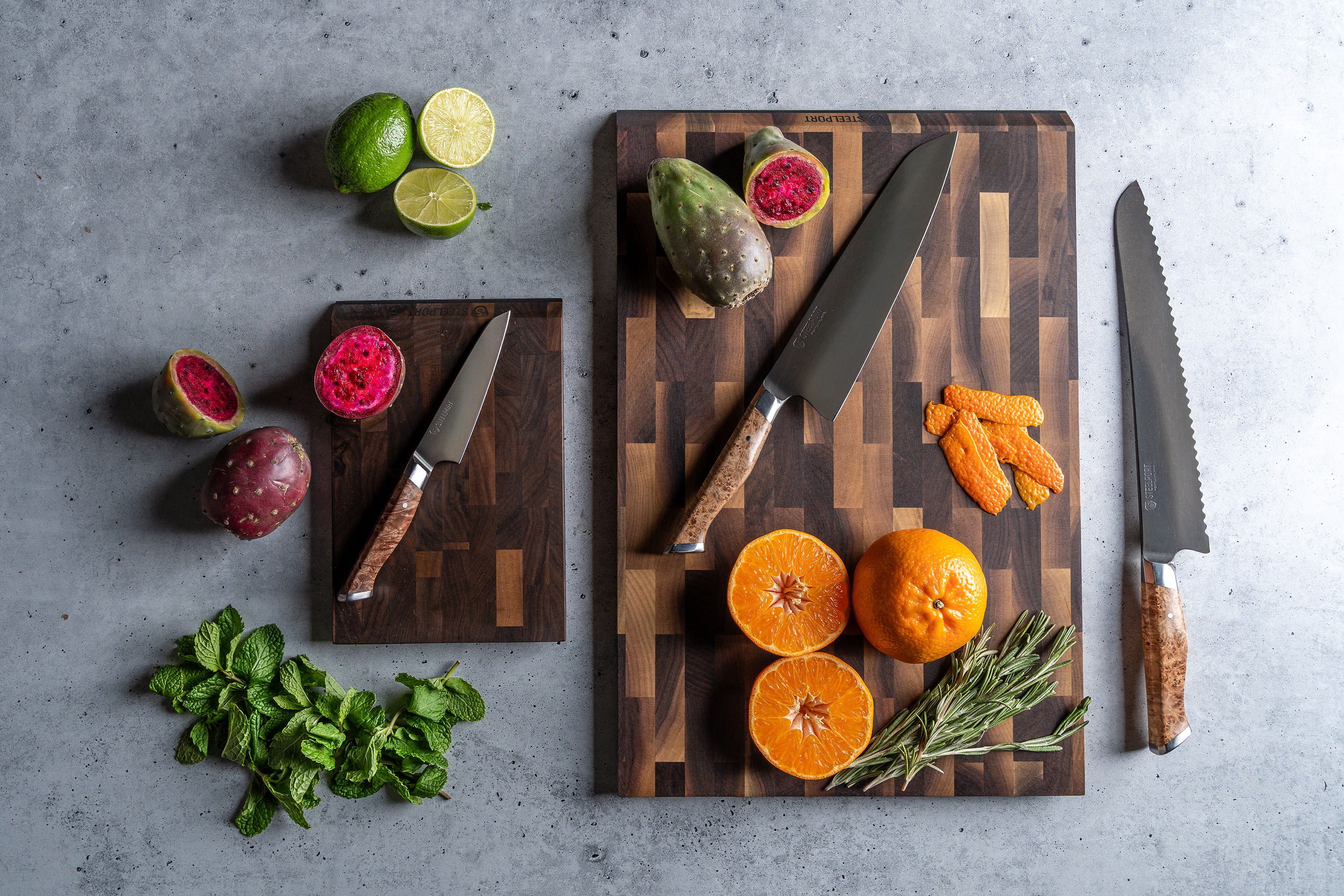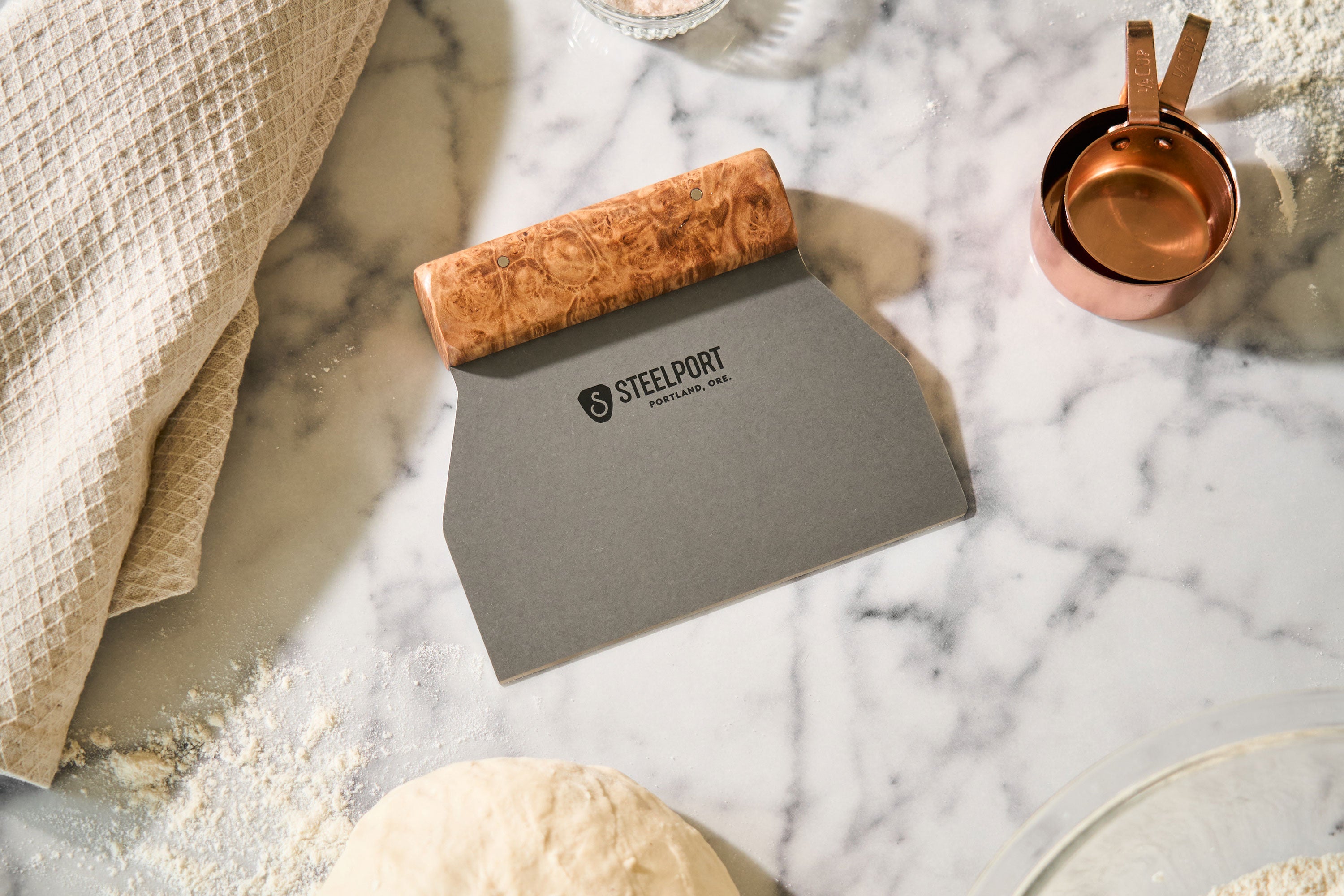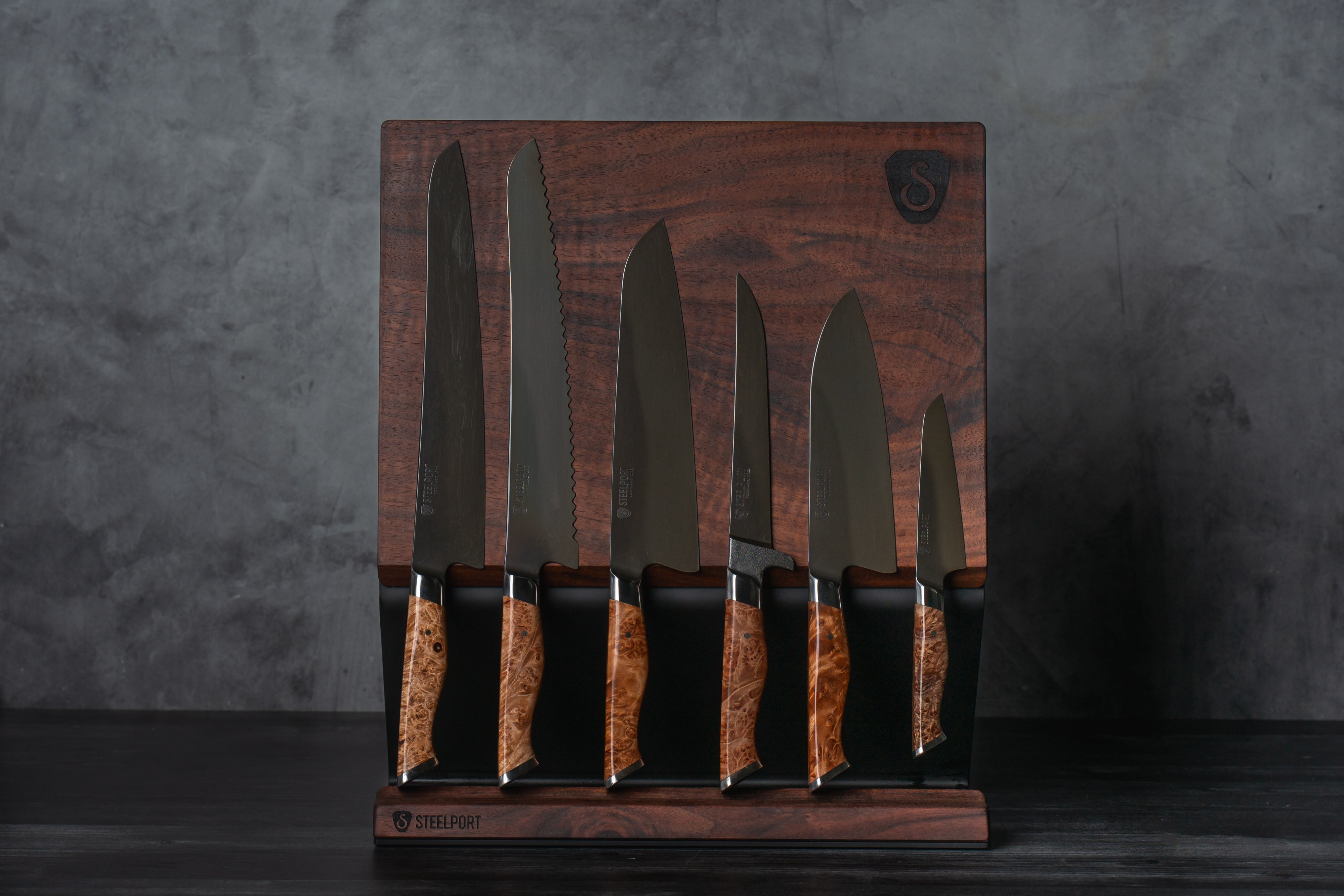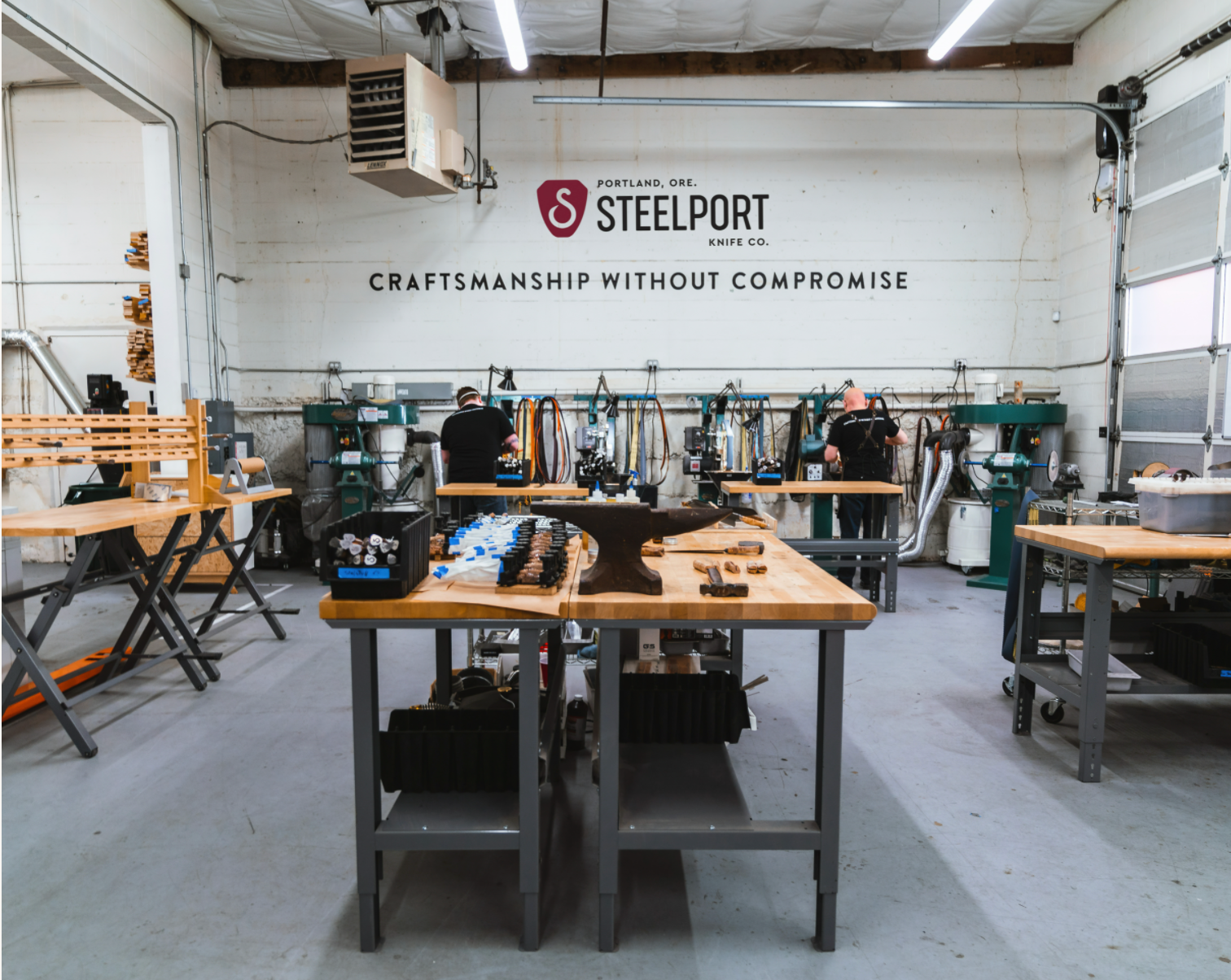The State of American Manufacturing
Interview originally featured in InsideHook, July 2025 - “The State of American Manufacturing, According to 10 Companies.” There’s a lot of talk about American manufacturing these days. The loudest conversations in the last year have been centered around a few key products, like cars, smartphones and microchips. While these are critically important items — to you, to the country, to the global economy — they’re far from the whole picture. What about the U.S. factories that are dedicated to producing all the other goods that are essential to and enrich our daily lives, from furniture to cookware to shampoo? Interview with Ron Khormaei of STEELPORT Knife Co. Job title: CEO and founder Headquarters: Portland, Oregon What they make: Kitchen knives and accessories
What does your American manufacturing footprint look like?
Steelport is a small employee-owned team of artisans based in Portland, Oregon. We have about 12 team members who work at our factory where we complete most of the 135 steps in our process of handcrafting our heirloom-quality kitchen knives. We also have an R&D forge and heat treatment in North Portland where we develop new products and processes in smaller test batches.
If you had to point to one American-made product that stands out among your line, what would it be?
Our 8” Chef Knife is our original and still most popular knife. This, like all of our offerings, is fully American-made using U.S.-sourced materials. When we launched Steelport in 2021, nearly all cutlery in the marketplace was mass-produced overseas. Meanwhile, we knew there were incredible knives being traditionally forged and locally made by independent craftspeople, but only on a very small inaccessible scale. We started with a goal of reintroducing a premium American-forged kitchen knife that was actually accessible.
The general feeling is that it’s a good time to be making things in the U.S. What is the reality like for you so far this year?
We have always felt strongly about making our heirloom-quality products here in the U.S. That commitment has never wavered. During the height of the pandemic, when many companies faced massive supply-chain disruptions, our production never slowed down. Because all of our materials — even our packaging — are sourced domestically, we were able to continue delivering consistent quality without compromise. That said, like everyone else, we’re seeing rising costs across the board.
What are the biggest challenges you’re facing in terms of making things here?
A large barrier remains the customer’s understanding of the value provided. With the proliferating sophisticated marketing technologies, customers are getting bombarded with half-truths and slogans. So it becomes convenient to just select the lowest-cost products or brands with the biggest marketing budgets. As an example, our latest offering is an innovative cutting board that introduces a true dual-sided functionality and the thinnest end grain available through our innovative patent-pending SteelCore process. It is entirely made in Portland with U.S.-sourced material, and is the first major innovation in cutting-board technology in about a century. But when communicating this information to customers, we are competing with brands spending a huge amount on flashy paid ads with dubious claims of innovation, and even misleading marketing about being U.S.-made (for example, when a U.S.-based brand does 99% of manufacturing overseas). All of this tires potential customers, creating a sense of overwhelm and mistrust in the industry.
Have recent tariffs impacted your business at all?
Even though we source all our materials domestically, the tariffs still impacted us. Right before the steel tariffs were even officially implemented, our U.S. steel supplier raised prices by 10%, likely anticipating increased demand. On top of that, we started getting order cancellations from some international retailers — some explicitly saying they were avoiding U.S.-made products because of the geopolitical climate. It has been an unexpected challenge, especially when we’re trying to represent the best of American craftsmanship abroad. We’ve since shifted focus to strengthening domestic sales and increasing focus on our new product development.
If you could change something about your industry to help your business thrive, what would it be?
It would be highlighting that quality cutlery can be made here. I’d shift the perception that the best kitchen knives have to come from Japan or Germany. Those countries absolutely have rich knife-making traditions, and they’ve earned their reputations, but that global spotlight has left very little room for American-made cutlery to even be considered.
Why is American manufacturing important to you?
When you manufacture locally, you’re not just creating a product — you’re building a community. You’re supporting skilled jobs, keeping craftsmanship alive, and showing that the U.S. is still a place where world-class quality is possible.

